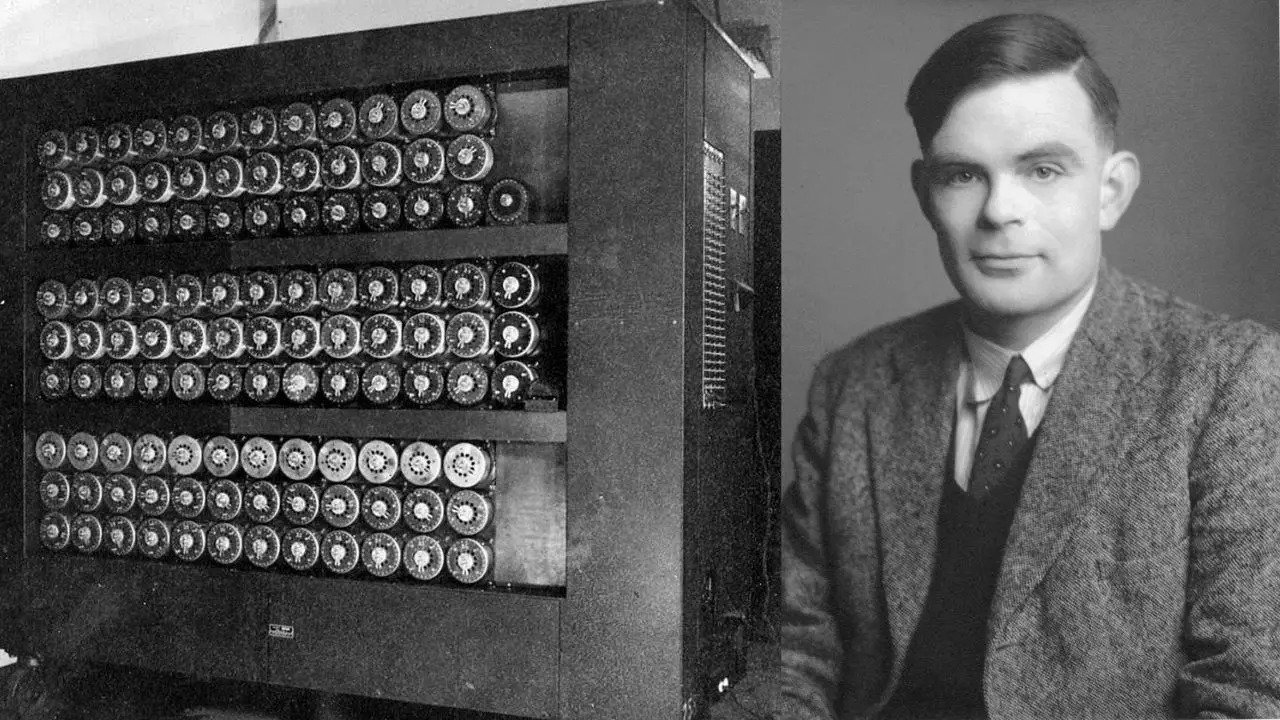1936: Alan Turing & The Turing Machine - Pivotal Moments
Welcome to our fourth Pivotal Moments blog. If you follow us on social media, you'll know what this is all about. To paraphrase Confucius, it's only by knowing where we've been that we can understand where we're going.
“Study the past if you would divine the future.”
—Confucius
Most people have heard of Alan Turing. You may have been hiding under a rock if you’ve not seen The Imitation Game with Benedict Cumberbatch. But who was Alan Turing?
The Turing Machine is likely the first thing that comes to mind. Maybe you’ve got a vague idea about code breakers in WWII? You’re not far off. But the two are essential for separate reasons and about as complicated as the man himself was.
Still, Turing’s contributions to computer science have changed how we live. And in ways that he would likely never have imagined.
Early Life
Born on June 23rd, 1912, Alan Turing was the son of a civil servant and attended a high-ranking private school. In 1931, he began studying mathematics at King’s College at the University of Cambridge. 1934, they elected him to a fellowship for his probability theory research.
The Pivotal Moment - Turing's 'Problem'
Statue of Alan Turing seated on a bench
Turing’s pivotal life moment came early on. Aged 24, he published a seminal paper, “On Computable Numbers, with an Application to the Entscheidungsproblem”. A bit of a mouthful, right?
The translation of the German is “Decision Problem”. Soon enough, an established scholar from the US, Alonzo Church, recommended this paper for publication. Turing’s paper followed a different method to that of Church but reached the same conclusion as he had.
The Problem sought an effective method for solving a fundamental mathematical problem. It looked to determine precisely which mathematical statements are provable within a formal mathematical system and which are not.
That might sound like severe mathematical jargon, but Turing and Church concluded (independently) that there was no resolution. This meant there was no possibility of a formal system to reduce all mathematics to methods that human “computers” could carry out.
Turing’s paper had a profound effect on the emerging science of computing. During his work on the Problem, Turing invented the computing machine that became the forerunner of the modern digital computer. What he called the “a-machine” is what you might know as the Turing Machine.
The Turing Machine
Though we've covered our Pivotal Moment for today, Alan Turing's impact stretches far beyond this crucial moment alone.
Turing’s argument about the Decision Problem was that the Turing Machine could also compute everything that was humanly computable. Importantly, it set limits on what could be done with human computation.
He theorised that A Turing Machine was an abstract computing device with infinitely long memory tape. The tape stored symbols and a machine device could read, write, or modify symbols on that tape. The machine could also hold information about its state and had a set of rules that described what it should do based on that state and what it read.
If that sounds complicated, then think of it like this…
The design's fundamental concept was that it had a stored programme where rules for computing were stored in memory. Building anything would theoretically be possible with enough rules on a Turing Machine. With enough rules, you could make anything from a browser to a video game—though it would be inefficient.
The Turing Machine was ground-breaking because of its simplicity. Because it was clear about what it could and could not compute, it is still considered the most powerful machine in the world.
Any modern computing system as powerful as Turing Complete is called Turing Complete. This includes anything—including your smartphone, Fitbit, and microwave. The world of computers and the age of digital marketing would not exist as we know it without this man.
Code Breaking & Bletchley Park
Alan Turing, code-breaking machines used at Bletchley Park
Turing, being his genius, continued to change the world. At the outbreak of the war with Germany in 1939, he presented himself at the Government Code and Cypher School’s headquarters in the famous Bletchley Park.
British mathematician-cryptanalysts had already successfully cracked the German cypher machine, Enigma. However, their method relied on specific German operating procedures. When those procedures changed in May 1940, their code-breaking machine, “Bomba”, became useless.
With Turing on the case, he designed a new but very different code-breaking machine. Known as the “Bombe,” it successfully supplied the Allied Forces with vast practical military intelligence.
Turing devised a systematic method for breaking down encrypted German messages created by the German cypher machine Tunny. This led to Turing's being made an Officer of the Most Excellent Order of the British Empire (OBE).
In 1951, he was honoured with an election as a fellow of the Royal Society of London. But a year later, he was convicted of “gross indecency” for the then-crime of homosexuality. The courts sentenced him to hormone “therapy” that equated to chemical castration, and since Turing now had a criminal record, he was no longer able to work for GCHQ.
Why is Turing Still Important Today?
Though Turing was a genius who was grossly victimised during his lifetime, his work remains essential. He is undeniably the founding father of modern cognitive science and artificial intelligence. Plus, he was an early supporter of the hypothesis that the human brain is a large, digital computing machine.
Turing continued to make breakthroughs, even after being wrongfully disgraced and barred from continuing his code-breaking work.
After the war, he designed the first complete specification of an electronic stored-program all-purpose digital computer, known as the Automatic Computing Engine (ACE). He then went on to write the first programming manual. His system was later used in the first commercially marketable electronic digital computer, the Ferranti Mark I 1951. Without his achievements, computer science would not be what it is today.



